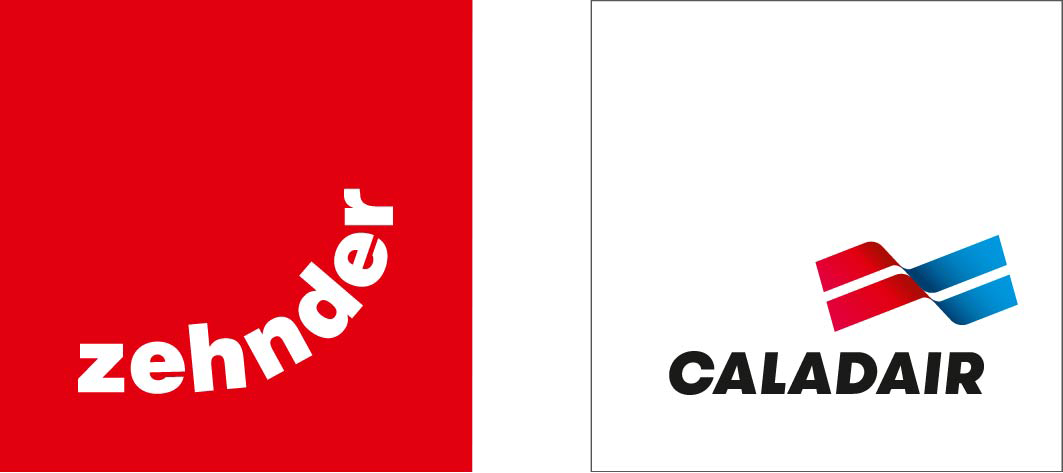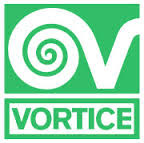
Knowledge Area
Here you will find helpful information about Heat Recovery and Ventilation from
general advice and information manuals and product Videos. Select the category
that you would like to see resources for.
Heat Pump FAQ’s
Air source (A2W) heat pumps
What is an A2W (air to water) heat Pump?
Air source heat pumps take heat from the outside air to provide hot water to your central heating system and hot water to your taps, it can also provide comfort cooling if required.
A heat pump is safe for the environment as it itself emits no carbon dioxide emissions and uses minimal electricity as a Panasonic heat pump can return up to 5 Kw of heating for every 1 Kw of electricity used.
It is also possible to further increase the efficiency by connecting the heat pump or water cylinder to solar panels/wind turbine and your ventilation system.
How does a heat pump work?
A new Panasonic heat pump is very advanced with very few moving parts, but in simple terms, it simply uses a fan to push air through a heat exchanger that extracts the heat and uses a refrigerant gas compressor to heat up the water for your home.
This is not new technology as a fridge works in a very similar way but in reverse.
Is a heat pump suitable for my home?
Heat pumps are suitable for new well-insulated homes and existing homes that can upgrade the heating system and water tank to be able to use lower temperature heating.
The reason for this is because a heat pump is at its most efficient and costs less to run when producing lower temperature water in comparison to a fossil fuel boiler.
For a property to be effectively heated with a low-temperature heating system, it’s essential to reduce the heat losses as much as possible and the best way to do this is to insulate. The better insulated the home, the more efficient the heat pump will be.
Should I choose underfloor heating or radiators?
Underfloor heating is the best system to be used with a heat pump. Because it uses the entire floor area as a heat emitter, underfloor heating can heat your home with low water temperatures of around 35°C. It’s these lower temperatures that really boost the efficiency of the heat pump and keep your running costs low.
When you heat a home with radiators, you are circulating hot water that is around 70-80°C to emit heat through a small surface area into the room. Traditional radiators are designed to work with high-temperature heat sources like boilers, so aren’t ideal to be used with a heat pump.
If underfloor heating isn’t an option, it is possible to have radiators, but you would have to size the radiators to operate at a lower temperature of 35°.
You could also use aluminium low-temperature radiators. These are smaller but do cost considerably more than a standard radiator.
Cooling your house with an A2W heat Pump
A heat pump is suitable to provide comfort cooling to a house, but a few things should be noted;
- The heat pump must be a reversible heat pump that can provide both heating and cooling
- The system must be designed to provide cooling from the start as not to supply cold water to your cylinder or heating system
- You should not use the UFH system to provide cooling as it could cause condensation on the floor or cause the floor to crack
- You should not use normal radiators for cooling as they could condensate
- You should use Smart Fan coils or water-cooling coils (LPCW) connected to the MVHR ventilation system
Heating and cooling coils
Smart fan coils look like conventional radiators but are designed to provide efficient comfort cooling and heating with your heat pump, The fan coils have a built-in controller and a small fan that when required will help circulate the heat around the room.
Wall-mounted fan coils can be connected to a heat pump or A/C system to provide cooling or heating to any room although these are mostly used in commercial applications.
Fan coils with slot diffusers can be used in commercial or designer homes and all you would see would be a long unobtrusive slot in the ceiling but would require a substantial void to allow for the installation.
LPHW (low-pressure hot water) coils connect to the heat pump to provide additional heating or frost control to the ventilation system.
LPCW (low-pressure cold water) coils connect to the heat pump to provide additional cooling to the ventilation system, it is also possible to provide additional heating with the same coil.
How efficient are heat pumps?
Heat pumps are more efficient than other heating systems because the amount of heat they produce is more than the amount of energy they use and always compare the datasheet for the energy efficiency for the following.
Heat pumps should be designed to run longer at a lower temperature.
COP.
The amount of heat produced for every unit of electricity used is known as the Coefficient of Performance (CoP). So, if a heat pump has a CoP of 4.0, then it will give out four units of heat for every unit of electricity consumed. But this is measured at one temperature so the CoP is not always helpful in understanding what the cost of running the heat pump will be.
SCOP / SPF
The Seasonal Coefficient of Performance (SCoP) or Seasonal Performance Factor (SPF) is used to show what to expect in terms of running costs across the whole year.
This figure is calculated by the heat pump designer when calculating your heating loads and demonstrates how the heat pump should perform given the average temperatures at your location and other details such as the size of your radiators.
ERP
ErP stands for Energy-related products. These are used on any products that use energy to operate or have an impact on energy consumption.
The most energy-efficient would-be A+++ rated with the worst being E rated and if a heat pump has an A++ ErP rating, it is considered highly efficient because the heat pump produces more energy than it consumes. Heat pumps must show their energy performance both as an individual product and as an overall heating system.
Will installing a heat pump help save money on my heating bills?
While the compressor and pumps need electricity to work, they generate up to 5 times more energy than they use.
Panasonic J generation Heat pumps at this time are much cheaper to run than using electric heating and can be similar or cheaper than natural gas or oil but the main difference is not what the difference is now but what the future cost of oil and natural gas will be when carbon fuels are being discouraged from use from 2025 and totally for 2050 due to environmental and resource issues starting.
To futureproof your home it is recommended that a heat pump should be designed into new houses from now on as it could be expensive to retrofit later.
Hot water
The largest demand from your heat pump in a well-insulated home is not heating but hot water.
A heat pump needs to be able to store hot water for when you need it. There are various options of a hot water cylinder to suit your house including;
Duo- Pre-plumbed tank
- This is the best option with a Mono-bloc heat pump as it combines a stainless steel domestic hot water tank (DHW) with a buffer tank into one compact and easy to install package
- These tanks are available with a capacity of either 200 or 300 litres DHW tank with a 70-litre buffer tank
Separate DHW tank and Buffer
- If you have enough room, require a bespoke system or just to keep the expenditure down you could install a separate buffer tank and a separate DHW tank
- These tanks are available in various sizes and types of construction from stainless steel to copper to suit your project and budget
It is possible to reduce the size of the heat pump by using solar or wind power to generate additional hot water.
The hot water in the cylinder will need to periodically reach 60°C or higher to kill harmful bacteria and this is achieved by either the heat pump or the immersion heater (an electric heater within your hot water cylinder) to top up the temperature to the required level.
Do I need permission to install a heat pump?
Before installing a heat pump, it’s important to check if you need to apply to your local planning authority for permission. Most heat pump installations are considered ‘permitted developments’, meaning no permission is required. However, there are exceptions, and it’s best to check with your local planning department before proceeding, especially if you live in a listed building or conservation area.
Installation
Finding a good installer:
Panasonic air to water heat pumps should be installed by a qualified installer and preferably an approved Panasonic heat pump engineer.
We always recommend you get quotes from at least two different installers that have completed their Panasonic training. We have many well-qualified installers available through our network covering the Uk and ROI.
Warranty
Panasonic provides up to 7 years warranty on their units that cover both labour and parts.
- 3 years standard warranty
- 5 Years extended warranty if registered by a Panasonic trained installer
- 7 years Extended + warranty if registered by a Pro Panasonic trained installer and smart cloud integration
All warranty schemes will require annual servicing by a certified installer.
Maintenance
As with any heating system, a heat pump needs to be well maintained to operate as designed – though luckily most heat pumps tend to be easy to maintain with minimal input required from the end-user.
With regularly scheduled maintenance, you can expect a heat pump to operate for 15 to 20 years or more.
Typical checks include gas pressure testing, visual inspection of the water pump, external pipes, fittings, and electronics.
Controls
Panasonic heat pumps can use the Aquarea Smart Cloud. It is the most advanced heating control available which allows you to view and control everything from heating to monitoring energy consumption.
Aquarea can be connected to the Cloud by adding the CZ-TAW1 panel, enabling both end-user control and remote maintenance by service partners.
This will also allow you to remotely control the heat pump via your phone app.
Additional recommendations to get the most out of your Heat Pump
- Try to build your house to Passive House Standards with the use of airtight membranes
- If installing large glass areas, design in shading to prevent overheating (this is now becoming a serious issue in some builds)
- Shop around for the best electricity tariff in your area
- Insulate as much as possible
- Install solar panels/wind turbine to provide additional heat to the DHW tank
- If you could have solar gain issues think about fan coils to provide comfort cooling
What info is required to size a heat pump
Air source and ground source heat pumps are given output ratings in kilowatts (kW) which represent how powerful a heat pump is. As a rule, the bigger your home, the higher the heat pump's output needs to be.
Sizing a heat pump is never simple. There's no one-size-fits-all as the heating demands of every property and family is unique. To get air source and ground source heat pump size right for your home, it should be assessed on the following factors:
- Location
- Section and elevation plan
- Type/size of property
- Amount of Glass
- Occupation rate
- Level of insulation/heat loss
- Size of radiators or underfloor heating
- Desired indoor temperature
- Seasonal outdoor temperatures in your area
To improve and speed up this requirement it is advised that you provide either the SAP or BER calculations showing your required heating requirement.
With the above information, our in-house designers will be able to provide a bespoke proposal for your project.
Is it better to oversize or undersize a heat pump?
The only way for a heat pump to run efficiently and heat your home effectively is if the output rating suits the heating demands of your home.
Overall, an undersized heat pump is better than an oversized one. An undersized heat pump will take longer to change the temperature. But the unit won't be as loud and will last longer. An oversized heat pump will turn on and off more frequently, which will use more electricity.
Heat pump location
An air-source heat pump requires good airflow to work at its most efficient. This is because it draws air in through the sides and the back of the unit and then allows cold air to exit from the front once the heat has been extracted.
- On the ground in an open area outside your house
- At least 1 meter from any obstruction
- At least 300mm from a wall
- Away from bedroom walls
- Shelter away from possible flooding or snow drifts
If you live close to the sea, we will always recommend the unit be treated externally with an additional salt inhibiter and protector.
As condensation is generated at the unit you will also need to have a soakaway or drain positioned beside the unit.
Do I need Three Phase electricity?
Most manufacturers have single-phase machines but bigger buildings over 400m2 or large houses without good insulation will usually need a three-phase supply or else two or more heat pumps.
Are there any grants available?
There are Grants available in certain areas and it is always recommended to ask what is available now and in the future in your area.
How long will the refrigerant last?
Unlike older equipment (and car air-conditioning), the refrigerant within a modern heat pump unit is very unlikely to leak at all (when did you last hear of a refrigerator leaking its refrigerant?) but should it do so, this would detract from the net CO2 savings made when the heat pump is heating.
Types of Panasonic air source (A2W) heat pumps
There are 3 types of Panasonic (A2W) heat pumps
All in One
Consists of a small outdoor unit and a compact indoor unit with a water cylinder and buffer tank;
Benefits
- Ideal for apartments and small houses
- Small outdoor unit
- Compact indoor unit
- Outdoor unit can be fitted up to 50 meters from the home
- Will not freeze
- Highly insulated Stainless-steel tank
Disadvantages
- Requires gas pipes between indoor and outdoor units
- More complex to install
Bi-Bloc
(Split) System – Consists of a small outdoor unit and a wall-mounted unit inside the home;
Benefits
- Small outdoor unit
- Compact indoor unit
- Outdoor unit can be fitted up to 50 meters from the home
- Will not freeze
- Highly insulated Stainless-steel tank
Disadvantages
- Requires gas pipes between indoor and outdoor units
- More complex to install
- Requires a separate indoor water cylinder and buffer tank
MonoBloc
The most popular for houses and consists of one, easy to install, outdoor unit that is simply connected by two water pipes to the homes heating system;
Benefits
- Ideal for all types of houses
- Easy to install and commission
Disadvantages
- Larger unit
- May need antifreeze / Glycol
- Requires a separate indoor water cylinder and buffer tank
Panasonic models
Aquarea High-Performance J generation
Highly efficient system for modern low energy homes with COPs up to 5.33.
Aquarea T-Cap
The highest efficient heat pump for extremely low outdoor temperatures of up to -20° without the help of an electrical booster heater.
Aquarea HT
Ideal for retrofit with houses with old temperature radiators with 65° output even at -15° outside temperature.
Newsletter
Keep up to date with offers, products, and company news, direct to your inbox
By signing up, you agree to our privacy policy, terms & conditionsInstallation Service
If you would like to learn more about our installation service, please contact us:
Call us on 028 28 275 150 or click below to contact us online
Trade Discount
If you are a developer or installer, apply for a trade discount online.
Click below for easy application
Distributors for the worlds leading ventilation manufacturers
We are distributors and stockists of the leading ventilation products




















